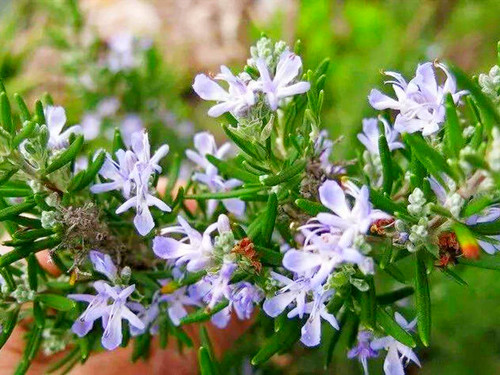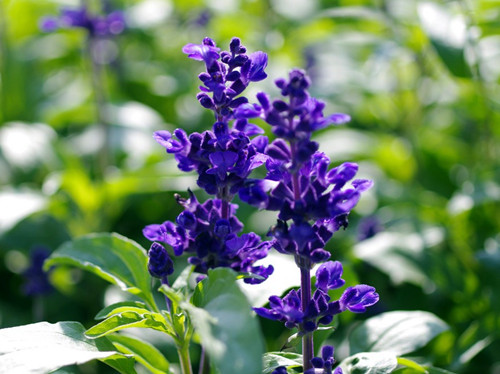A growing number of studies are examining the role of natural ingredients in reducing or curing Alzheimer’s disease(AD). These studies show that there are several ways to help those suffering from the disease, including the use of certain herbs.
Clinical studies have shown that herbs such as ginger, withania somnifera, rosemary, ginkgo biloba, licorice, and ginger have a positive effect on cognition in AD patients. Several other herbal preparations are also promising and are being tested in clinical trials, these include rhodiola rosea, Salvia officinalis, Melissa officinalis, and sage. Further research is needed to determine the effectiveness of these herbs and whether or not they can slow cognitive deterioration. In this review article, we look at the neuroprotective mechanisms of various herbs and the potential for treating the disease, here are some of them:
Ginkgo biloba
Studies have shown that ginkgo biloba and its derivatives can help treat cognitive disorders, including Alzheimer’s disease. This disease, the number one cause of disability worldwide, is associated with degeneration of neuronal structures in the brain. Although there are no randomized controlled trials on ginkgo biloba, the benefits of G. biloba and its derivatives are already recognized. Although there is still debate regarding the mechanisms by which the herb works in preventing and treating cognitive disorders, there are many positive effects of this herb.
The study found that ginkgo had a significantly higher mean SMD for ADL outcomes than placebo. It also showed statistical superiority in a subgroup of patients diagnosed with Alzheimer’s disease. Both groups experienced similar drop-out rates, although ginkgo was significantly superior in these outcomes. However, because the study populations were heterogeneous, it was not possible to determine whether ginkgo was superior to placebo.
Rosemary
Research on the benefits of rosemary essential oil for Alzheimer patients has revealed promising results. The essential oil has a stimulating and sedative effect, and it inhibits acetylcholinesterase in the brain. Studies have also shown that rosemary can reduce depression and anxiety and increase memory. In addition to its benefits for Alzheimer patients, rosemary extract can help improve sleep and mood. Research on the therapeutic potential of rosemary has found that its constituents are highly potent antioxidants. The therapeutic effects of rosemary diterpenes on AD must be evaluated in conjunction with oxidant-antioxidant mechanisms. In AD, there is a link between ROS-mediated neuronal cell death and Ab-mediated cell damage. This link is particularly striking in the brain regions affected by Alzheimer’s disease.
Ginger
Researchers have discovered that ginger contains several compounds that could potentially fight Alzheimer’s disease. Researchers identified more than 400 bioactive compounds in ginger, with at least 50 of these being antioxidants. Antioxidants have several important functions in our bodies. Free radicals cause inflammation and damage cell DNA. Since the brain uses so much oxygen, it is especially vulnerable to free radical damage.
Ginger extract has anti-acetylcholinase effects that enhance the function of cholinergic neurons, similar to the process used in modern treatments for AD. Curcumin has a neuroprotective effect, which can inhibit the gradual deposition of a large amount of amyloid protein outside nerve cells, that is, it has a strong clearing effect on pathological plaques in the brain. By protecting the brain from further damage, ginger can improve memory loss following a stroke. The anti-inflammatory properties of ginger help protect glial cells, which remove toxins and metabolic debris from the brain.
Ashwagandha
If there is one plant that is good for preventing and reversing cognitive decline and disease, it is Withania somnifera. The plant is widely used in Ayurveda, where it has many medicinal properties. It is part of the Solanaceae family and is commonly used as a nerve tonic. Its root is extensively used for its antioxidant properties and calming effect. Recent studies suggest that Withania somnifera may have benefits in Alzheimer’s disease, including reduced stress, reversal of forgetfulness, and increased ability to focus.
This Indian plant is effective in reversing the cognitive decline associated with Alzheimer’s disease. Its effects were shown in experiments in which old mice were given oral extracts of Withania somnifera. The extract reversed the pathology of the brains of mice suffering from APP/PS1 disease and the accumulation of b-amyloid peptides and oligomers. In addition, it improved plasma levels of Ab and decreased the concentration of brain Ab monomer after seven days. This was a sign of increased transport of Ab from the brain to the periphery.
Sage herb
Among the many herbs being studied for its potential to combat Alzheimer’s disease, Sage has a number of positive qualities. Its oestrogenic, antioxidant, and anti-inflammatory properties make it valuable for treatment. Moreover, it is considered a safe alternative to other drugs. In the United States, this herb has received some positive press, particularly in the area of Alzheimer’s disease.
Researchers from the University of Newcastle, UK, have tested the effects of sage on memory loss. They used a test in which volunteers took either sage oil capsules or placebos. The results showed that the participants who had taken sage showed a significant improvement in their memory compared to those who had received placebos. It is not clear whether or not sage is a good herb for Alzheimer’s disease, but it does appear to improve memory abilities.
Yerba Santa
Yerba Santa, was originally used by California Native tribes to treat many respiratory ailments, fevers, bruising, infections and headaches. Yerba Santa contains flavanone sterols, a highly neuroprotective flavonoid. Subsequent tests revealed that it was a compound with “potent” neuroprotective and anti-inflammatory properties, with a significant effect on energy expenditure and inflammation of microglia cells in particular. Sterols were found to be an effective chelator of iron, “which can cause nerve cell damage in aging and neurodegenerative diseases.”
In the study, published in Redox Biology, author Pamela Maher, PhD, said, “They tested the effects of sterols on other age-related neurotoxicity associated with misfolded aggregation proteins and the accumulation of inflammation present in Alzheimer’s disease, and found that they were effective against many cell death inducers.
Herbal formulations for AD are an excellent alternative, they may not help with the symptoms of Alzheimer’s disease, but they may slow down the progression of the disease. However, they may have side effects such as increased toxicity. So, before you start taking natural ingredients for Alzheimer’s disease, it’s important to understand the risks and benefits of these compounds. The best way to choose an effective natural ingredient for this disease is to read as much research as you can before making a decision.
- Dandelion Extract: What It Is, Benefits, Uses and Side Effect - April 23, 2024
- Is Berberine Extract Help For Weight Loss? - April 11, 2024
- Why Is Pysllium Husk Powder A Popular Meal Replacement Ingredient? - April 3, 2024







